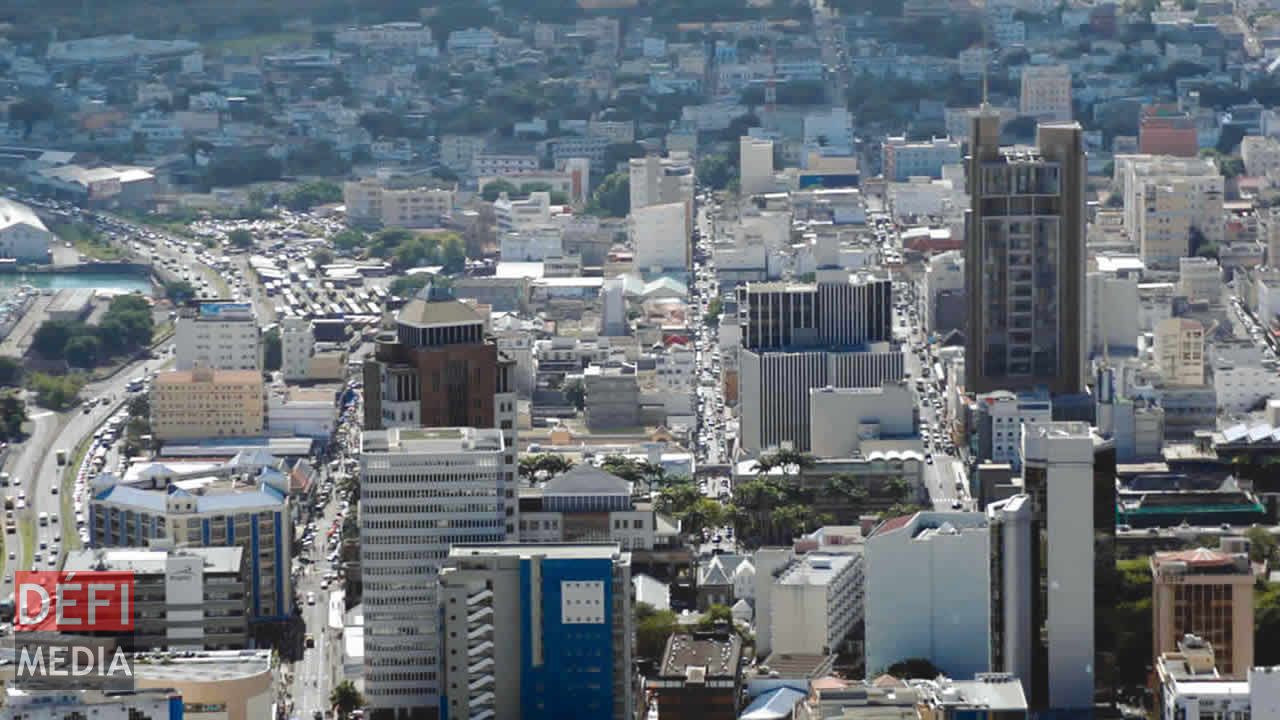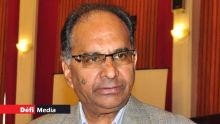
Budget passable, investissement poussif, endettement accru et nouvelle donne dans le secteur offshore font basculer davantage d’analystes dans le pessimisme.
Publicité
1. Sur les perspectives de l'économie mauricienne pour l'année financière 2017-2018, êtes-vous...
 Le pessimisme s’accroît
Le pessimisme s’accroît
En janvier dernier, 53% des sondés étaient assez pessimistes sur les perspectives de l'économie mauricienne pour l'année civile 2017. Six mois plus tard, le pessimisme gagne 73% des analystes. Cette hausse de 20 points s’explique par le fait que « the national budget was a list of void statements that will not encourage investments », pendant que « the export sector is taking a battering, and the investment is too centred on real estate and financed by ever rising debts ». Or, « high level of indebtedness will hinder economic growth », et « the tepid evolution of goods and services exports is not forecasted to improve materially, bearing in mind that sustaining economic growth for a small country like ours depends to a large extent on the performance of its export sector ».
2. D'après vous, les prochaines élections générales se tiendront en...
 Les élections générales en 2019
Les élections générales en 2019
De plus en plus d’analystes sont convaincus qu’il n’y aura pas d’élections générales anticipées. Ils sont maintenant 83%, contre 57% en janvier dernier, à dire que c’est en 2019 que la population sera appelée aux urnes. Car « by hook or by crook the current regime will hold on to maximum time », voire « hang in there at any cost ». Pourtant, « the current impopularity of government is likely to force the Prime Minister to convey a snap election in the event he manages to negotiate an alliance with another mainstream party ». D’autant que « the Prime Minister’s case at the Privy Council would be a major trigger if it goes the wrong way ». Tout compte fait, « there is still a feeling that not adequate focus is being laid on the economy as opposed to socio-political priorities in the country ».
3. Quel impact sur l’activité économique aura la tenue d’une élection partielle au numéro 18 ?
|
Une partielle sans impact économique
Dans l’esprit des analystes, une élection partielle dans la circonscription de numéro 18 aura bel et bien lieu. Néanmoins, 73% d’entre eux n’en voient aucun impact sur l’économie, surtout si l’alliance MSM/ML choisit de ne pas y participer. Du reste, « the government will issue the writ of election on the last day permissible so as to tire all the opposition parties ». Un résultat défavorable au gouvernement « will not change the balance of power in politics but will change the perception of the strength of the forces, and this may render the task of the government more daunting ». Certains soulignent un effet négatif de cette élection au vu des « additional costs along with deflection of attention from needed economic reforms ».
4. La situation actuelle de l’inflation vous paraît...
 Les analystes partagés sur l’inflation
Les analystes partagés sur l’inflation
Selon Statistics Mauritius, « the headline inflation rate for the twelve months ending June 2017 works out to 2.4%, compared to 0.9% for the twelve months ending June 2016. The year-on-year inflation rate for June 2017, as measured by the change in the CPI for June 2017 relative to June 2016, works out to 6.4%. » Pour 47% de répondants, « in spite of being engaged into an upward trend lately, headline inflation remains manageable » parce que « the increase is due to one-off events that are budgetary measures », et « there are no underlying inflationary pressures right now ». Ce qui fait que « in coming months, headline inflation is not likely to rise in an overly way, unless external shocks kick in, potentially linked to major hikes in oil prices ». Le cas échéant, « another one percentage point increase and the Bank of Mauritius will be forced to react ».
5. Quelle est votre prévision du taux de croissance de l’investissement privé en 2017 ?
|
L’investissement croît modérément
D’après la comptabilité nationale, « private sector investment is expected to grow by 2.8% in 2017, lower than the 6.2% growth in 2016 ». Sept sondés sur dix se montrent toutefois plus conservateurs que Statistics Mauritius. Un économiste rassure que « private sector investment could end up posting a resilient outcome this year, mainly underpinned by the execution of ventures notably related to the tourism and residential segments ». Moins sûr, un analyste déplore que « there are still many road blocks before we see any green shoots ». Plus tristement, tempête un autre, « the private sector will not invest as investments only happen in times of confidence in the ability of the political leaders to steer the country through challenges domestically and internationally ».
6. Selon vous, la juridiction mauricienne dans le secteur du Global Business va devenir...
|
L’attractivité de Maurice va décliner
L’île Maurice a signé la « Multilateral Convention to Implement Tax Treaty Related Measures to Prevent Base Erosion and Profit Shifting ». Presque tous les répondants sont d’avis que « the ensuing future revision of the double taxation avoidance agreements (DTAA) is likely to render the Mauritian jurisdiction less appealing ». Déjà, « following the catastrophic signing of the new DTAA with India, there has been a fall in funds through Mauritius to India as they are now set up in rival jurisdictions, notably Paris and Luxembourg ». Désormais, « the performance and positioning of the Mauritian International Financial Centre will be intrinsically dependent on its ability to ambitiously revise its business model, diversify its markets as well as add more substance to its value proposition, notably by means of the broadening of the range of its non-fiscal solutions and the attractiveness of offerings to encourage businesses to use Mauritius as a trade and investment hub between Asia and Africa ».
7. Comment voyez-vous la diplomatie mauricienne sur les enjeux économiques du pays ?
 Absence de diplomatie économique
Absence de diplomatie économique
OCDE, Brexit, Qatar : la diplomatie mauricienne semble être inconsciente des enjeux économiques du pays, selon trois sondés sur cinq, et pire, elle est taxée d’incompétente par 40% d’analystes. L’un précise : « Mauritius was right on the Chagos issue but inexistent on the other fronts. » Ainsi, se demande l’autre, « is there an economic diplomacy with a mute and subdued minister of foreign affairs? ». Quand il faut rester silencieux, « the communiqué on Qatar speaks for itself » ! Comme quoi « the less said the better » ! Instruments de la diplomatie économique, nos agences de promotion de l’investissement, de l’exportation et des services financiers vont se fusionner, mais « nothing will happen because incompetence at the top level will not change ».
8. Pour vous, l’Economic Development Board apportera à l'économie mauricienne...
|
Changer pour rester pareil
Le Board of Investment, Enterprise Mauritius et la Financial Services Promotion Agency deviendront une seule et unique organisation, appelée Economic Development Board (EDB). Pour 63% des sondés, celle-ci n’apportera ni plus ni moins de bénéfices à l’économie du pays. Certes, « the creation of EDB appears to be an interesting initiative to provide institutional support for strategic economic planning and ensure greater coherence and effectiveness in economic policy formulation, as well as to promote Mauritius as an attractive investment and business centre ». Mais l’EDB doit être « a fully efficient and effective institution with the right people in the right places with minimal politicking and with a well articulated strategy and road map ». Sinon, il risque d’être « a white elephant », d’autant que « operational and day-to-day affairs may pull down and crowd out the think-tank time and energy ».
Enquête d’opinion réalisée par PluriConseil du 10 au 12 juillet 2017 auprès d’un échantillon représentatif de 30 analystes économiques et financiers.

Notre service WhatsApp. Vous êtes témoins d`un événement d`actualité ou d`une scène insolite? Envoyez-nous vos photos ou vidéos sur le 5 259 82 00 !















![[Info Soirée] : « La vérité enterrée refait surface »](https://defimedia.info/sites/default/files/styles/square_thumbnail/public/thumbnail_240425.jpg?itok=cCbHkuD5)
![[En images] 5ᵉ Sommet de la COI à Madagascar : Ramgoolam rencontre Macron](https://defimedia.info/sites/default/files/styles/square_thumbnail/public/untitled_design_-_2025-04-24t174206.939.jpg?itok=wUNaZphP)




